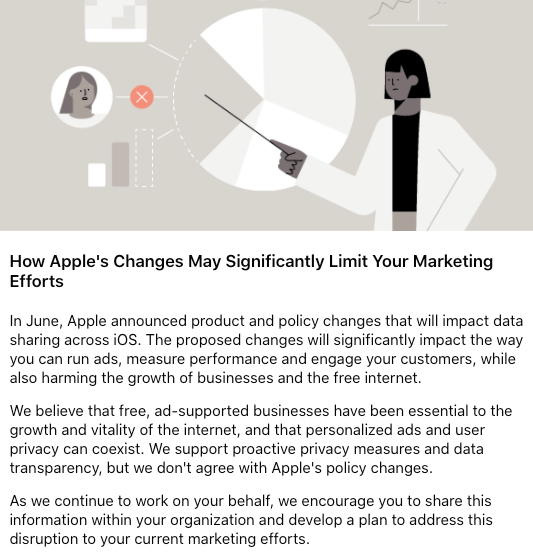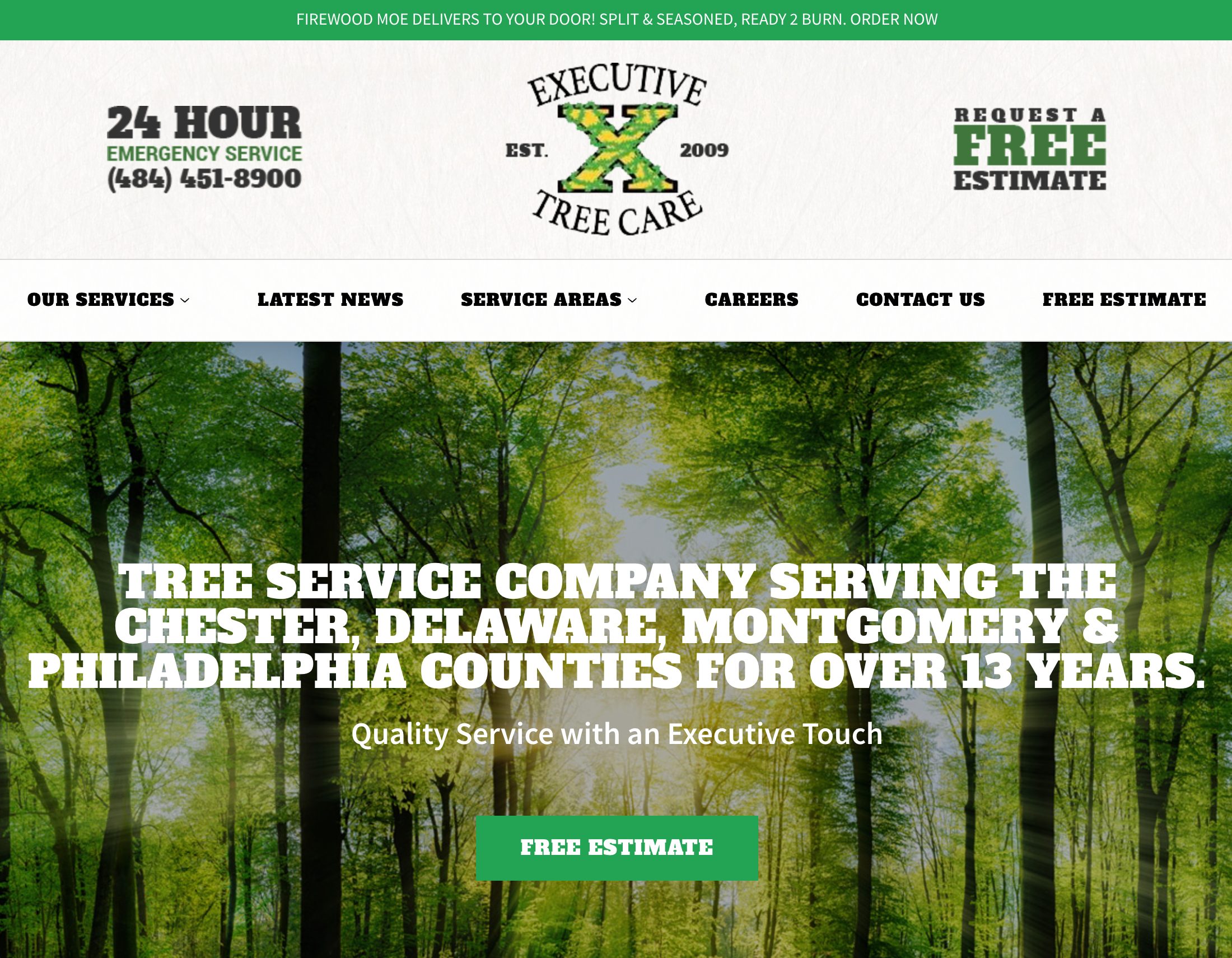It’s finally happening. If you’ve watched the recent Netflix series The Social Dilemma you’ve seen how social media platforms are tracking us using data and how they’re feeding that data to advertisers. I had a few conversations with friends and family who also watched the movie. They all seemed a little shook at how their data is being used. Most came to the revelation of “oh, so that’s why I keep seeing the same headphones from Amazon in my newsfeed.” Now as a marketer who is uploading customer data to Facebook, Google and other ad platforms almost daily I would respond with “if you liked those headphones, isn’t it nice to get a reminder? and isn’t it better then getting hit over and over with a bunch of ads for stuff you don’t want?” Think about TV commercials, if you’ve ever been sick in bed on a monday afternoon and forced to watch the Price is Right you’ve seen an ad for the Hover round, the Clapper or AARP. TV commercials became so invasive that people have pulled the plug in dramatic fashion and are now using paid services like Netflix to get around them. At least with retargeting ads (this is what the ads that target users based on their data are called) you’re seeing products and services that you were actually interested in at one point.
Here’s a few examples of how small businesses will be affected by Apple’s privacy update:
You book a reservation online with a new restaurant. You go to that restaurant, have an amazing dinner and say to your date “this place is great, we need to bring our friends here.” You leave the restaurant and completely forget that you were there. Your parents come into town and you take them to Applebees because you completely forgot about the great meal you had at your favorite new restaurant. Now, say that restaurant is using a company like ours to handle their marketing. We pull all of the names, email addresses and phone numbers from their online booking software and upload to Facebook ads. Facebook then matches people’s profile based on the data that we uploaded. We use that new audience to setup an ad that says “You’ve been to our restaurant before, we’d love to see you again! Here’s an offer for a Free Appetizer on your next visit” You see that ad, and now your family is sharing a memorable new restaurant instead of eatin good in the neighborhood.
You visit a local hardware store website in the summer looking to rent a chainsaw. You don’t rent the chainsaw, but you like that hardware store and would rather support a local business than go to Home Depot or Lowes (who spend billions on TV ads.) That hardware store’s website has a Facebook pixel installed which essentially tracks users that come to their website so they can market to those users in the future. It’s now 8 months later in the middle of the winter and you’re desperately looking to buy a shovel and salt because there’s a foot of snow on your driveway. Home Depot and Lowes are completely sold out. You see an ad from your local hardware store pop up in your Facebook feed that says “We have shovels, salt and snow blowers in stock!” You shoot over to the hardware store, buy your shovel and salt and your problem has been solved.
Both of those examples show practical ways that using consumer data better connects consumers with the small businesses that matter most to them. Apple privacy settings update will not allow Facebook or other social apps to share the data. When this happens you’re essentially turning off the faucet for small businesses to connect with consumers and opening the floodgates for large corporations to drown you in ads.
For information about how we’re helping our clients combat this problem, please reach out through our website.
You can read more on Facebook’s stance on this new social dilemma HERE. There’s also a great article on CNBC that has more information including how the industry is adapting their advertising strategy.

Apple Privacy changes affecting Facebook ads















